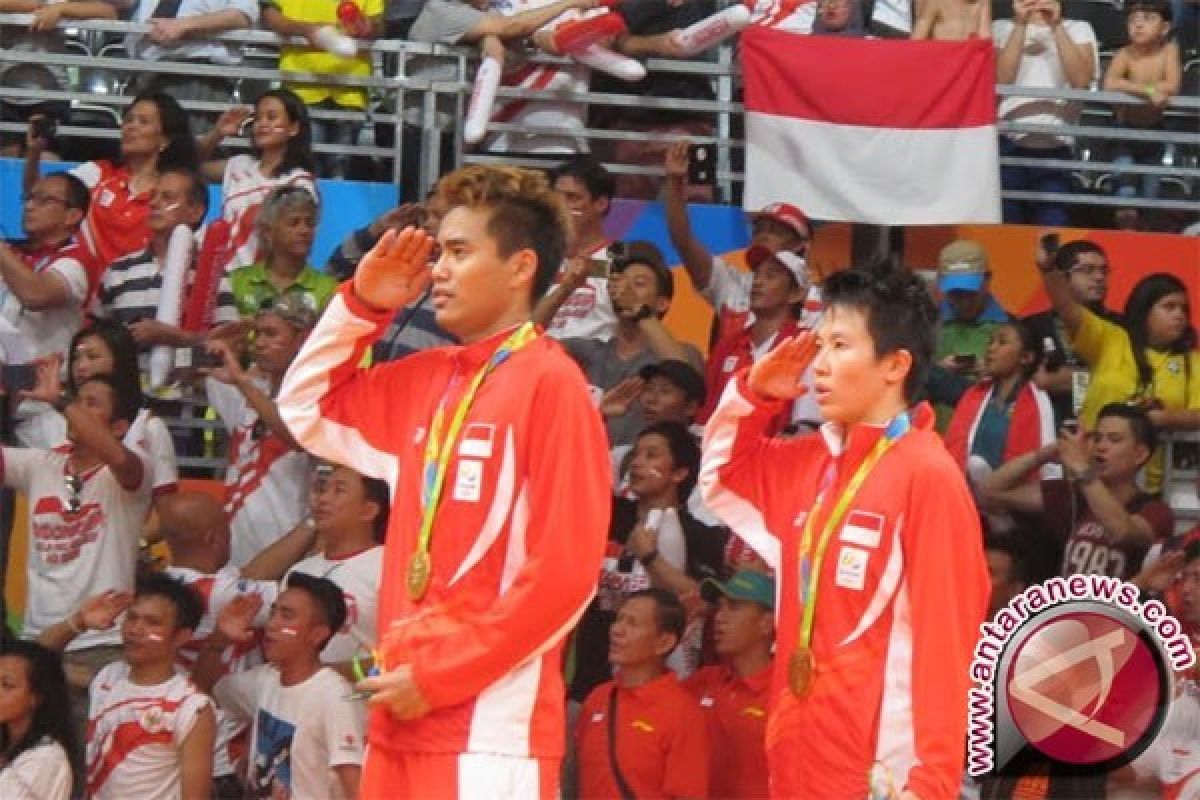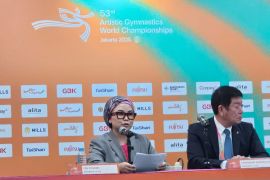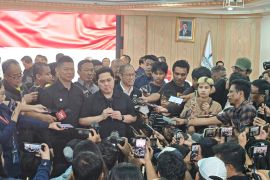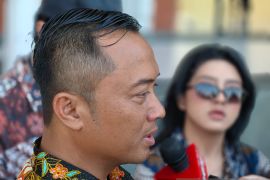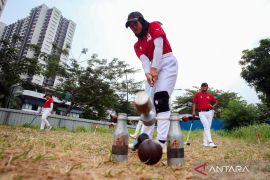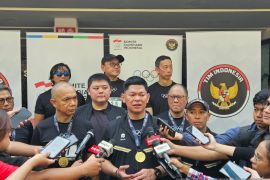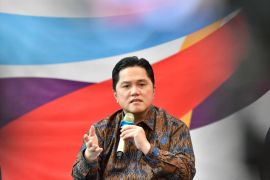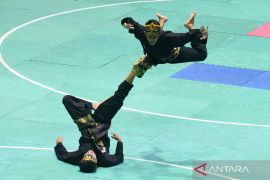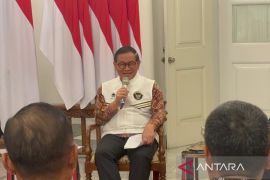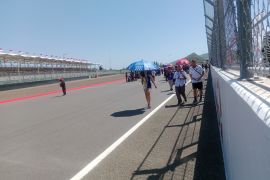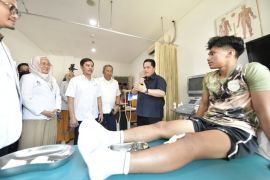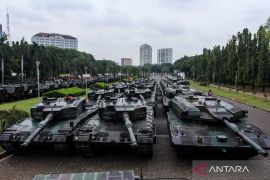The DBON is a long-term master plan for national policies for the development of educational sports, recreational sports, competitive sports, and the sports industry for 2021–2045. It was stipulated in President Regulation Number 86 of 2021 concerning the DBON.
At the recent Paris 2024 Olympics, Indonesia managed to bag three medals: two gold medals and one bronze medal.
Meanwhile, at the Paris Summer Paralympic Games, Indonesia secured a total of 14 medals comprising one gold medal, eight silver medals, and five bronze medals.
One of the crucial focuses to ensure the development of present and future athletes is uniform distribution of facilities and infrastructure.
According to the 2022 DBON Center Management Monitoring and Evaluation Report of Deputy 4 of the Ministry of Youth and Sports, sports facilities and infrastructure, including equipment, are vital for supporting the training of young athletes.
Based on the evaluation instruments, as many as 52 percent of potential young athletes consider existing facilities and infrastructure to be adequate.
However, the report also sheds light on some problems. For example, in archery, potential young athletes and center managers highlighted the issue of training fields not being adequate yet.
Apart from that, in shooting and sport climbing, the equipment is still considered limited. It also does not yet meet Olympic standards.
Furthermore, the facilities for practice matches or tryouts are also considered inadequate to meet the competency and mental needs of potential athletes.
The report recommends fulfilling the right to facilities and infrastructure by ensuring they are more adequate and equally distributed because this is closely tied to supporting the coaching and learning of potential young athletes to prepare them for competitions.
Long-term investment
Uniform distribution of facilities and infrastructure and improvement in athlete achievements are also inseparable from the budget provided by the government, as the main stakeholder.
It can be said that this is a long-term investment to achieve the big goals in the field of national sports in the future.
Earlier, in September 2024, Commission X of the House of Representatives (DPR) approved the definite budget ceiling for the Ministry of Youth and Sports for the 2025 budget year at Rp2.3 trillion (USD1 = around Rp15,946).
Youth and Sports Minister Dito Ariotedjo explained that the 2025 budget ceiling allocation comprises the budget for six work units.
They include Rp64.24 billion for the deputy of youth empowerment and Rp60.24 billion for the deputy of youth development.
They also include Rp70.12 billion for the deputy of sports culture, Rp1.7 trillion for the deputy of sports achievement improvement, Rp396.1 billion for the ministry's secretariat.
They further comprise Rp30 billion for the Sports Fund and Business Management Agency (LPDUK).
Wise and accurate budget management is also the next task for the government because it is closely related to infrastructure and the implementation of other aspects, such as sports science, to make them more evenly distributed and inclusive in Indonesia.
To this end, it is important that athlete development and coaching be carried out as early and efficiently as possible, which will ultimately help produce potential athletes in the near future.
Lilik Sudarwati, a former badminton athlete and head of sports science at the National Sports Committee of Indonesia (KONI), said that funding regulated in the DBON must also seep down to the district level and not only focus on national-level centralized training programs.
"This is a big national task. Thus, the policies must be synchronized," she added.
In addition, pursuing uniform distribution of adequate and suitable facilities and infrastructure that have been prepared until now will not only have an impact and support training programs for prospective athletes, but also ensure sustainability in coaching, regular and tiered competitions, and rapid regeneration of athletes.
The Indonesian National Olympic Committee (NOC Indonesia) has also provided recommendations and encouragement to the government and the DPR to provide affirmative support, including tax incentives for private sector players supporting sports development.
The other suggestion from NOC Indonesia to the government is increasing corporate social responsibility (CSR) programs that focus on developing sports that have big potential but are facing significant funding challenges.
This is in keeping with Article 76 of Law Number 1 of 2022 on National Sports, which states that limited liability companies/business entities can play a role in providing community development funds for sports development.
With equal support, it is hoped that an inclusive and sustainable sports ecosystem can be created.
It is not impossible that with efforts to ensure equal distribution and strong collaboration of relevant stakeholders, Indonesia can make positive and sustainable breakthroughs in sports, which would eventually help the country make a mark at global-level sports events.
Related news: Government upgrades training centers for 2028 Olympic athletes
Related news: Indonesia's AAFI targets LA 2028 Olympics for flag football team
Editor: Rahmad Nasution
Copyright © ANTARA 2024
